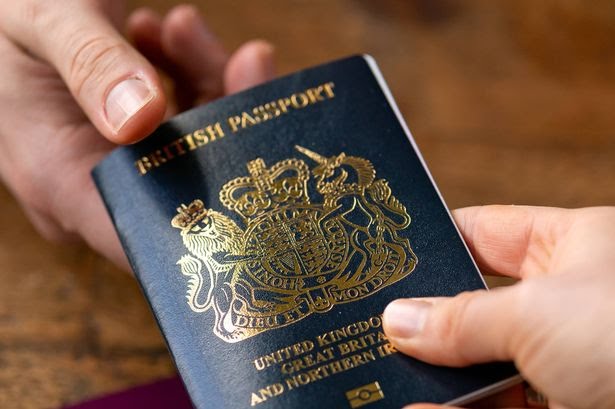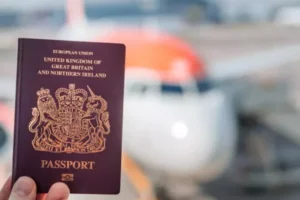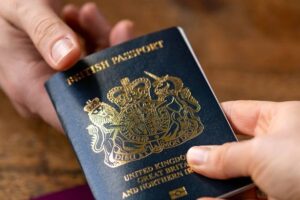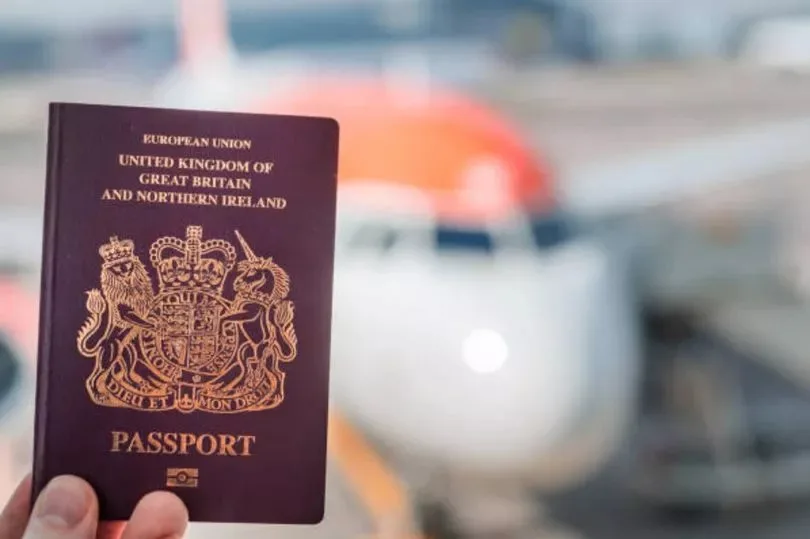
UK Passport Holders Urged to Have “Backup Plan” When Travelling Abroad
- Foreign News
- 23.09.2025
- No Comment
- 24
The UK Foreign, Commonwealth & Development Office (FCDO) has issued fresh guidance urging UK passport holders to prepare carefully before travelling abroad. With international travel on the rise, officials are encouraging travellers to have not just their passports but also a backup plan to safeguard their journeys.
According to the advisory, relying solely on a passport or mobile phone is risky. Losing either can cause major delays, missed flights, or even legal trouble abroad. This is why the Foreign Office recommends travellers keep extra forms of identification and a clear contingency plan.
The FCDO’s foreign travel checklist highlights one key tip: “Take an extra form of photo ID with you, other than your passport.” This could be a driving licence, a national ID card (if available), or any other official form of photo identification. Carrying two IDs helps if your passport is lost, stolen, or damaged during travel.

Additionally, some countries may request an additional form of identification when completing immigration or banking paperwork, booking hotels, or renting vehicles.
What to Include in Your Backup Plan
The Foreign Office stresses that having a backup plan is more than just bringing an extra ID. It involves securely recording and storing key travel information that can help you if things go wrong. This includes:
- Accommodation details and booking confirmations.
- Flight information and reference numbers.
- Your passport number and issue/expiry dates.
- Emergency contact details for friends or family.
- Insurance policy numbers and contact information.
Officials recommend sharing this information with a trusted family member or friend back home, or storing it securely online with a reputable data storage platform. This way, you can access crucial details even if you lose your phone or documents abroad.
Complete These Steps Before Departure
The FCDO checklist also encourages travellers to complete the following tasks before leaving the UK:
- Sign your passport and fill in the emergency contacts page.
- Check that your passport meets entry requirements for your destination country.
- Ensure you have the correct visa for your destination.
- Bring an extra form of photo ID besides your passport.
- Check if extra documentation is needed for travelling with children.
- Confirm whether you need an International Driving Permit (IDP) if you plan to drive abroad.
Completing these steps helps avoid last-minute problems and ensures your trip goes smoothly.

Urgent Messages from HM Passport Office
Recently, HM Passport Office sent urgent text alerts to people heading on holiday, reminding them: “Remember to check that your passport is valid for the country you are travelling to.” These messages link to the official Foreign Travel Advice page on GOV.UK, where you can find entry requirements and safety guidance for each destination.
Renewing or Applying for a Passport Online
Travellers who need a new passport, replacement, or update can do so quickly and securely via the official GOV.UK passport service. Online applications are the most affordable option, saving you £12.50 compared to applying by post. You can also:
- Apply for a first adult or child passport.
- Renew an expiring passport.
- Update personal details such as name changes.
- Request a replacement if your passport is lost or stolen.
Fees vary depending on age and application method, so always check the latest costs before applying.
Meeting Entry Requirements Abroad
Different countries have different passport validity rules. Some require at least six months’ validity remaining on your passport from the date of entry, while others have more relaxed requirements. Always check the entry rules for your destination well in advance of travel. The Foreign Travel Advice website provides up-to-date information on visa and health requirements as well.
International travel is exciting, but losing your documents or misunderstanding entry rules can quickly turn a dream holiday into a nightmare. The Foreign Office’s advice is designed to protect UK travellers from these risks. By carrying an extra ID, preparing a backup plan, and double-checking your documents, you can travel more confidently and securely.
Remember, a little preparation goes a long way. Sharing key information with trusted contacts and using secure online storage ensures you won’t be stranded if the unexpected happens.





